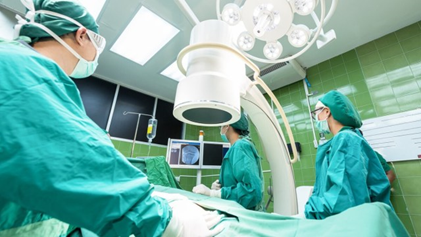Ross Hall Hospital, part of the Circle Health Group and Scotland’s largest private hospital, has invested over £2 million in upgrading its technology with the introduction of a Da Vinci surgical system. This advanced setup features multiple mechanical arms controlled by a surgeon through a connected console.
The robotic arms allow for a greater range of motion compared to the natural hand and wrist, enabling smaller, more precise movements to be made by surgeons. Ross Hall’s Da Vinci system matches the surgeon’s hand movements in real time, allowing the robotic arms to simulate the movements exactly.
Robotic-assisted surgery is generally less invasive, with patients benefiting from lower risks of secondary infection, reduced blood loss, and faster recovery times.
Among the procedures on offer at Ross Hall is robotic-assisted radical prostatectomy, an operation offered to prostate cancer patients to remove the whole prostate and the cancer cells inside it.
Professor Ahmad, a consultant urological surgeon at Ross Hall Hospital said: “Robotic surgery has revolutionised care for men with prostate cancer. It is the standard of care for patients undergoing radical prostatectomy, with a lower incidence of pain, less bleeding, and a quicker return to pre-operative levels.”
Robotics are becoming increasingly used within healthcare, with robotic arms being developed to aid recovery in stroke victims, as well as social robots to help people rehabilitate after injury by offering instruction and encouragement during exercise sessions using human-like limbs to physically demonstrate how to do exercises properly.
Earlier this year the National Robotarium, based at Heriot Watt University’s Edinburgh campus, hosted a visit from Caroline Lamb, an NHS Scotland chief executive and director, to showcase the latest innovations in robotics for healthcare.
In 2021, the Scottish Government announced an investment of £20 million in 10 surgical robots based with NHS boards across the country, with the aim to boost hospital capacity in Scotland and improve patient outcomes in cancer care.
According to experts at the National Robotarium, robots and AI could be used to cut NHS waiting lists and reduce delayed discharges in the next two to five years. Backing this theory, new research from the University of Aberdeen, shows that using AI to identify patients suitable for joint replacement surgery has the potential to cut waiting times and improve surgical efficacy.
Source: DIGIT

